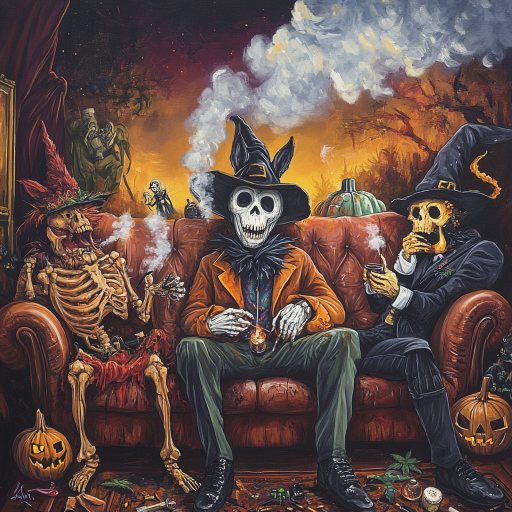Explore the Best AI Image Gallery

The Role of AI-Generated Images in Modern Marketing
Artificial intelligence (AI) has revolutionized numerous fields, and marketing is no exception. The advent of AI-generated images is not merely a trend; it represents a fundamental shift in how businesses create and engage with visual content. This blog post explores the implications of AI-generated images in marketing, highlighting their benefits, potential uses, ethical considerations, and future prospects in the creative industry.
Impact on the Creative Industry
AI-generated images are changing the landscape of the creative industry. Traditionally, graphic design and photography have required significant time, skill, and financial resources. However, with AI tools like DALL-E, Midjourney, and Stable Diffusion, companies can produce high-quality visual content quickly and affordably. This reduction in barriers allows even small businesses and startups to compete with larger enterprises in terms of visual branding.
Moreover, the integration of AI into the creative process acts as a collaborative partner for designers. By assisting in ideation and execution, AI tools can unlock new creative pathways that human designers might not have considered. The surprise element brought by AI can lead to innovative marketing campaigns that stand out in an oversaturated market.
Potential Uses of AI-Generated Images in Marketing
AI-generated images have a range of applications in marketing, enhancing various aspects of the customer journey. Some potential uses include:
- Content Creation: Companies can generate custom images for blog posts, social media, and advertisements. This capacity not only saves time but also allows for more tailored content that resonates with target audiences.
- Personalized Marketing: AI can create personalized visuals based on user data and behavior, tailoring advertisements to individual preferences. This level of customization increases engagement and conversion rates.
- Market Testing: Brands can create multiple variations of visual content to test which resonates best with their audience before launch.
- Brand Identity: AI tools can help develop unique branding elements, logos, and graphics that differentiate a brand in the marketplace.
- Augmented and Virtual Reality: AI-generated visuals can enhance marketing experiences within augmented and virtual reality environments, providing immersive advertising solutions.
Ethical Considerations
While the possibilities of AI-generated images in marketing are expansive, ethical considerations must be addressed. One of the main concerns is the authenticity of content. As AI can produce indistinguishable images from traditional photography or design, there is a risk of misleading consumers. Marketers must ensure that AI-generated visuals are clearly labeled to maintain transparency.
Additionally, the use of AI-generated images may lead to a dilution of artistic originality. In a world where AI can replicate styles and aesthetics, the question arises: what constitutes ownership of an image created by an AI? Intellectual property laws need to evolve to protect both AI creators and human artists alike.
Future Trends
Looking forward, the role of AI-generated images in marketing is expected to grow even more significant. As AI technology improves, we will see higher-quality images produced at an even faster pace. This evolution will enable marketers to be more agile and responsive to market trends, that is crucial in today's fast-paced digital landscape.
Furthermore, the integration of AI with other technologies such as machine learning and natural language processing will create opportunities for even more personalized and interactive marketing experiences. Future campaigns might utilize AI to analyze real-time consumer behavior and adapt visuals accordingly, making marketing truly dynamic.
Lastly, collaborations between brands and AI developers will likely continue to rise, inspiring innovative use cases and applications. Marketing agencies will need to stay updated on AI advancements to harness these tools fully and drive their clients' success in a digital-savvy world.
Conclusion
The rise of AI-generated images is undeniably changing the face of marketing. From speeding up the creative process to enabling personalized experiences, the applications of AI in marketing are vast and promising. While ethical considerations remain a critical aspect of this technological advancement, the potential benefits are too significant to overlook. As we move forward, businesses that embrace AI-generated visuals will likely gain a competitive edge, ushering in a new era of creativity in the marketing realm.